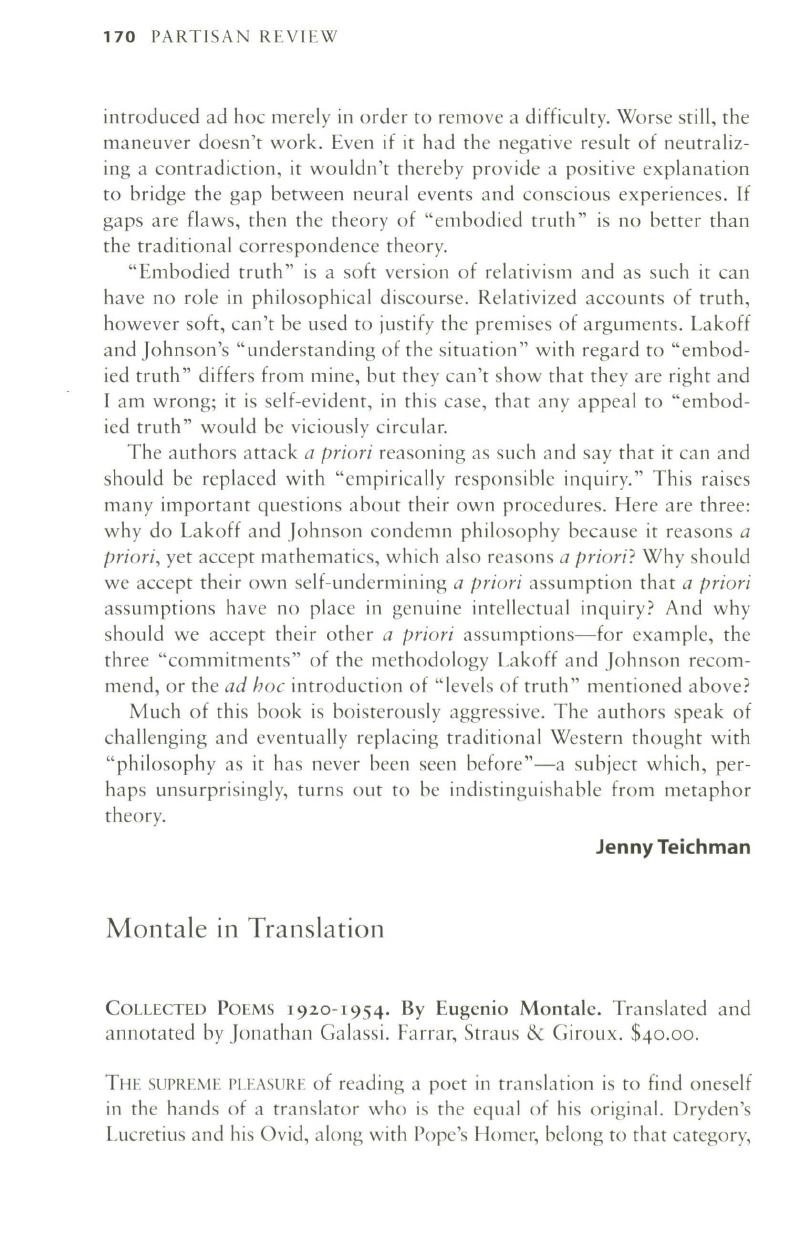
170
PARTISAN REVIEW
introduced ad hoc merely in order
to
remove a difficulty. Worse still, the
maneuver doesn't work. Even if it had the negative result of neutraliz–
ing a contradiction, it wouldn't thereby provide a positive explanation
to bridge the gap between neural events and conscious experiences.
If
gaps are flaws, then the theory of "embodied truth" is no better than
the traditional correspondence theory.
"Embodied truth" is a soft version of relativism and as such it can
have no role in philosophical discourse. Relativized accounts of truth,
however soft, can't be used
to
justify the premises of arguments. Lakoff
and Johnson's "understanding of the situation" with regard
to
"embod–
ied truth" differs from mine, but they can't show that they are right and
I am wrong; it is self-evident, in this case, that any appeal
to
"embod–
ied truth" would be viciously circular.
The authors attack
a priori
reasoning as such and say that it can and
should be replaced with "empirically responsible inquiry." This raises
many important questions about their own procedures. Here are three:
why do Lakoff and Johnson condemn philosophy because it reasons
a
priori,
yet accept mathematics, which also reasons
a priori?
Why should
we accept their own self-undermining
a priori
assumption that
a priori
assumptions have no place in genuine intellectual inquiry? And why
should we accept their other
a priori
assumptions-for example, the
three "commitments" of the methodology Lakoff and Johnson recom–
mend, or the
ad hoc
introduction of "levels of truth" mentioned above?
Much of this book is boisterously aggressive. The authors speak of
challenging and eventually replacing traditional Western thought with
"philosophy as it has never been seen before"-a subject which, per–
haps unsurprisingly, turns out to be indistinguishable from metaphor
theory.
Jenny Teichman
Montale in Translation
COLLECTED POEMS 1920-1954. By Eugenio Montale. Translated and
annotated by Jonathan Galassi. Farrar, Straus
&
Giroux.
$40.00.
THE SUPREME PLEASURE of reading a poet in translation is
to
find oneself
in the hands of a translator who is the equal of his original. Dryden's
Lucretius and his Ovid, along with Pope's Homer, belong
to
that category,


